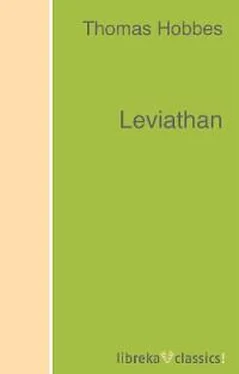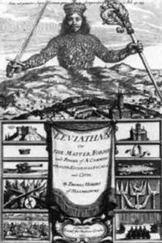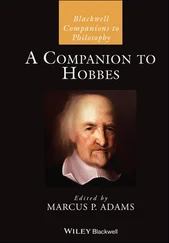Thomas Hobbes - Leviathan
Здесь есть возможность читать онлайн «Thomas Hobbes - Leviathan» — ознакомительный отрывок электронной книги совершенно бесплатно, а после прочтения отрывка купить полную версию. В некоторых случаях можно слушать аудио, скачать через торрент в формате fb2 и присутствует краткое содержание. Жанр: unrecognised, на английском языке. Описание произведения, (предисловие) а так же отзывы посетителей доступны на портале библиотеки ЛибКат.
- Название:Leviathan
- Автор:
- Жанр:
- Год:неизвестен
- ISBN:нет данных
- Рейтинг книги:5 / 5. Голосов: 1
-
Избранное:Добавить в избранное
- Отзывы:
-
Ваша оценка:
- 100
- 1
- 2
- 3
- 4
- 5
Leviathan: краткое содержание, описание и аннотация
Предлагаем к чтению аннотацию, описание, краткое содержание или предисловие (зависит от того, что написал сам автор книги «Leviathan»). Если вы не нашли необходимую информацию о книге — напишите в комментариях, мы постараемся отыскать её.
libreka classics – These are classics of literary history, reissued and made available to a wide audience.
Immerse yourself in well-known and popular titles!
Leviathan — читать онлайн ознакомительный отрывок
Ниже представлен текст книги, разбитый по страницам. Система сохранения места последней прочитанной страницы, позволяет с удобством читать онлайн бесплатно книгу «Leviathan», без необходимости каждый раз заново искать на чём Вы остановились. Поставьте закладку, и сможете в любой момент перейти на страницу, на которой закончили чтение.
Интервал:
Закладка:
Naturall Religion, From The Same
Curiosity, or love of the knowledge of causes, draws a man from consideration of the effect, to seek the cause; and again, the cause of that cause; till of necessity he must come to this thought at last, that there is some cause, whereof there is no former cause, but is eternall; which is it men call God. So that it is impossible to make any profound enquiry into naturall causes, without being enclined thereby to believe there is one God Eternall; though they cannot have any Idea of him in their mind, answerable to his nature. For as a man that is born blind, hearing men talk of warming themselves by the fire, and being brought to warm himself by the same, may easily conceive, and assure himselfe, there is somewhat there, which men call Fire, and is the cause of the heat he feeles; but cannot imagine what it is like; nor have an Idea of it in his mind, such as they have that see it: so also, by the visible things of this world, and their admirable order, a man may conceive there is a cause of them, which men call God; and yet not have an Idea, or Image of him in his mind.
And they that make little, or no enquiry into the naturall causes of things, yet from the feare that proceeds from the ignorance it selfe, of what it is that hath the power to do them much good or harm, are enclined to suppose, and feign unto themselves, severall kinds of Powers Invisible; and to stand in awe of their own imaginations; and in time of distresse to invoke them; as also in the time of an expected good successe, to give them thanks; making the creatures of their own fancy, their Gods. By which means it hath come to passe, that from the innumerable variety of Fancy, men have created in the world innumerable sorts of Gods. And this Feare of things invisible, is the naturall Seed of that, which every one in himself calleth Religion; and in them that worship, or feare that Power otherwise than they do, Superstition.
And this seed of Religion, having been observed by many; some of those that have observed it, have been enclined thereby to nourish, dresse, and forme it into Lawes; and to adde to it of their own invention, any opinion of the causes of future events, by which they thought they should best be able to govern others, and make unto themselves the greatest use of their Powers.
CHAPTER XII. OF RELIGION
Religion, In Man Onely
Seeing there are no signes, nor fruit of Religion, but in Man onely; there is no cause to doubt, but that the seed of Religion, is also onely in Man; and consisteth in some peculiar quality, or at least in some eminent degree thereof, not to be found in other Living creatures.
First, From His Desire Of Knowing Causes
And first, it is peculiar to the nature of Man, to be inquisitive into the Causes of the Events they see, some more, some lesse; but all men so much, as to be curious in the search of the causes of their own good and evill fortune.
From The Consideration Of The Beginning Of Things
Secondly, upon the sight of any thing that hath a Beginning, to think also it had a cause, which determined the same to begin, then when it did, rather than sooner or later.
From His Observation Of The Sequell Of Things
Thirdly, whereas there is no other Felicity of Beasts, but the enjoying of their quotidian Food, Ease, and Lusts; as having little, or no foresight of the time to come, for want of observation, and memory of the order, consequence, and dependance of the things they see; Man observeth how one Event hath been produced by another; and remembreth in them Antecedence and Consequence; And when he cannot assure himselfe of the true causes of things, (for the causes of good and evill fortune for the most part are invisible,) he supposes causes of them, either such as his own fancy suggesteth; or trusteth to the Authority of other men, such as he thinks to be his friends, and wiser than himselfe.
The Naturall Cause Of Religion, The Anxiety Of The Time To Come The two first, make Anxiety. For being assured that there be causes of all things that have arrived hitherto, or shall arrive hereafter; it is impossible for a man, who continually endeavoureth to secure himselfe against the evill he feares, and procure the good he desireth, not to be in a perpetuall solicitude of the time to come; So that every man, especially those that are over provident, are in an estate like to that of Prometheus. For as Prometheus, (which interpreted, is, The Prudent Man,) was bound to the hill Caucasus, a place of large prospect, where, an Eagle feeding on his liver, devoured in the day, as much as was repayred in the night: So that man, which looks too far before him, in the care of future time, hath his heart all the day long, gnawed on by feare of death, poverty, or other calamity; and has no repose, nor pause of his anxiety, but in sleep.
Which Makes Them Fear The Power Of Invisible Things
This perpetuall feare, alwayes accompanying mankind in the ignorance of causes, as it were in the Dark, must needs have for object something. And therefore when there is nothing to be seen, there is nothing to accuse, either of their good, or evill fortune, but some Power, or Agent Invisible: In which sense perhaps it was, that some of the old Poets said, that the Gods were at first created by humane Feare: which spoken of the Gods, (that is to say, of the many Gods of the Gentiles) is very true. But the acknowledging of one God Eternall, Infinite, and Omnipotent, may more easily be derived, from the desire men have to know the causes of naturall bodies, and their severall vertues, and operations; than from the feare of what was to befall them in time to come. For he that from any effect hee seeth come to passe, should reason to the next and immediate cause thereof, and from thence to the cause of that cause, and plonge himselfe profoundly in the pursuit of causes; shall at last come to this, that there must be (as even the Heathen Philosophers confessed) one First Mover; that is, a First, and an Eternall cause of all things; which is that which men mean by the name of God: And all this without thought of their fortune; the solicitude whereof, both enclines to fear, and hinders them from the search of the causes of other things; and thereby gives occasion of feigning of as many Gods, as there be men that feigne them.
And Suppose Them Incorporeall
And for the matter, or substance of the Invisible Agents, so fancyed; they could not by naturall cogitation, fall upon any other conceipt, but that it was the same with that of the Soule of man; and that the Soule of man, was of the same substance, with that which appeareth in a Dream, to one that sleepeth; or in a Looking-glasse, to one that is awake; which, men not knowing that such apparitions are nothing else but creatures of the Fancy, think to be reall, and externall Substances; and therefore call them Ghosts; as the Latines called them Imagines, and Umbrae; and thought them Spirits, that is, thin aereall bodies; and those Invisible Agents, which they feared, to bee like them; save that they appear, and vanish when they please. But the opinion that such Spirits were Incorporeall, or Immateriall, could never enter into the mind of any man by nature; because, though men may put together words of contradictory signification, as Spirit, and Incorporeall; yet they can never have the imagination of any thing answering to them: And therefore, men that by their own meditation, arrive to the acknowledgement of one Infinite, Omnipotent, and Eternall God, choose rather to confesse he is Incomprehensible, and above their understanding; than to define his Nature By Spirit Incorporeall, and then Confesse their definition to be unintelligible: or if they give him such a title, it is not Dogmatically, with intention to make the Divine Nature understood; but Piously, to honour him with attributes, of significations, as remote as they can from the grossenesse of Bodies Visible.
Читать дальшеИнтервал:
Закладка:
Похожие книги на «Leviathan»
Представляем Вашему вниманию похожие книги на «Leviathan» списком для выбора. Мы отобрали схожую по названию и смыслу литературу в надежде предоставить читателям больше вариантов отыскать новые, интересные, ещё непрочитанные произведения.
Обсуждение, отзывы о книге «Leviathan» и просто собственные мнения читателей. Оставьте ваши комментарии, напишите, что Вы думаете о произведении, его смысле или главных героях. Укажите что конкретно понравилось, а что нет, и почему Вы так считаете.












